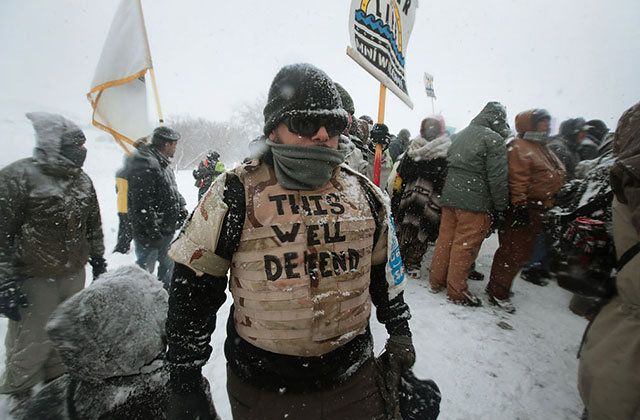The 2,000 veterans who went to Standing Rock to help defend water protectors in their battle against the now-halted Dakota Access Pipeline are now planning to visit Flint, Michigan in an act of solidarity, reports teleSUR.
"We don’t know when we are going to be there, but we will be heading to Flint," U.S. Army veteran Wes Clark Jr., who helped organize veterans to North Dakota, told the Flint Journal. "This problem is all over the county. It’s got to be more than veterans. People have been treated wrong in this country for a long time."
The hope is to return attention to the crisis, which has largely gone unnoticed by the national media in recent months. Residents in the predominantly Black city of nearly 100,000 continue to rely mainly on bottled water for their daily needs, more than two years after lead-contaminated water began running from people’s faucets.
The Flint water crisis and the #NoDAPL fight against the 1,172-mile-long pipeline have moved environmental racism into the national spotlight, showcasing how private interests and government shortcuts often sacrifice the health of communities of color.
In Flint, the city and state government failed to implement measures that would have prevented lead from leaching from old pipelines into residents’ water. When government officials found out what was happening, they initially ignored the problem. In North Dakota, the government ordered the company behind the Dakota Access Pipeline to move the project away from the White city of Bismarck due to safety concerns. They placed it next to the Standing Rock Sioux Tribe Reservation instead.
In recognition of that, the veterans arrived to Standing Rock December 4 during a North Dakota blizzard and held a ceremony the following day asking forgiveness for the military’s historical crimes against Native Americans. Tribal leaders welcomed their apology in song and prayer.
(H/t teleSUR, Flint Journal)
